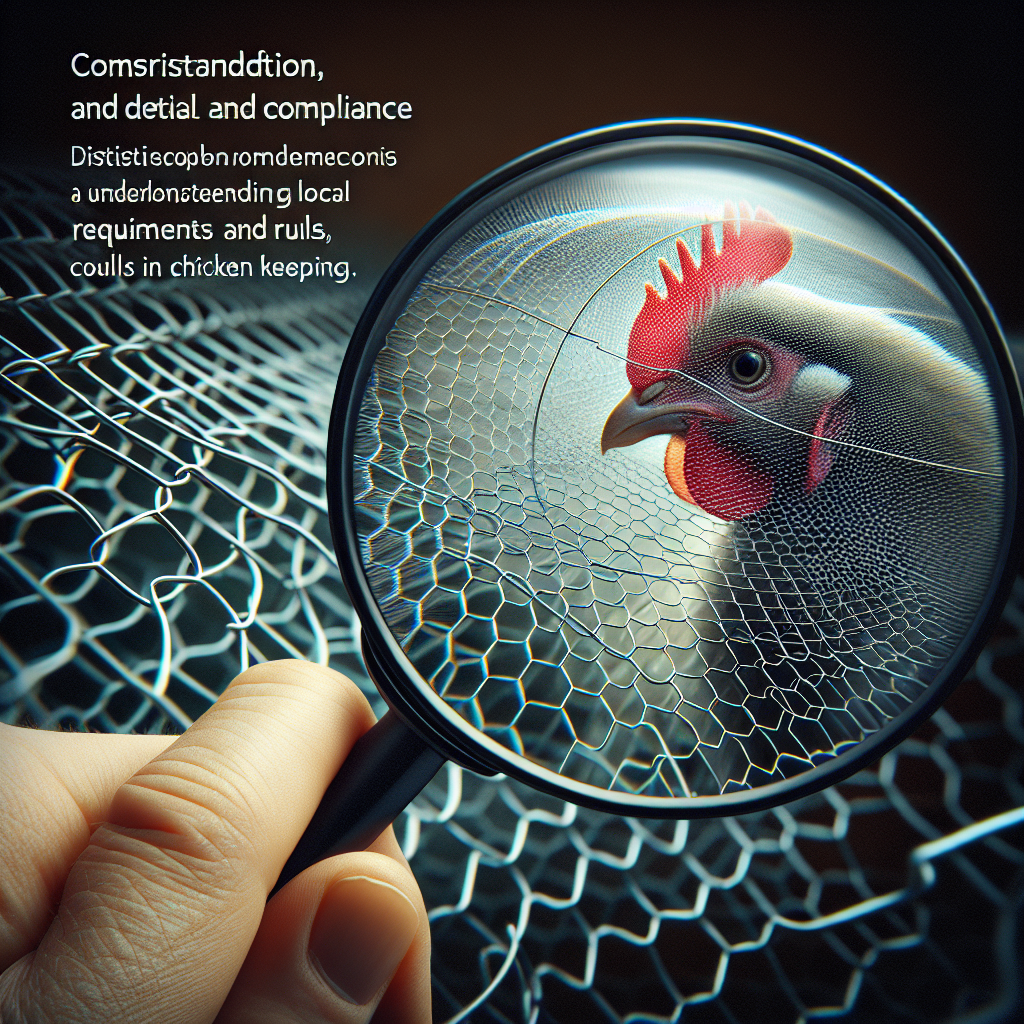If you’re new to egg collection and storage, navigating through the process may seem daunting at first. However, fear not! This article is here to provide you with the fundamental guidelines that every beginner should know. From how to safely collect eggs to the best practices for storing them, we’ll cover everything you need to ensure your egg collection journey is successful and enjoyable. So, grab your basket and let’s get cracking on this egg-citing adventure!
Proper Timing for Egg Collection
Determining when to collect eggs
Collecting eggs at the right time is crucial to ensure their freshness and quality. The timing varies depending on the type of eggs and the purpose for which they will be used. For chicken eggs, it is generally recommended to collect them once a day, preferably in the morning. This allows you to gather the eggs before they become dirty or cracked during the day. Other poultry, such as ducks or geese, may require different collection schedules due to their laying patterns.
Collecting eggs at the right stage of development
It is important to collect eggs when they are at the proper stage of development. For most purposes, including eating and incubation, eggs should be collected within a week of being laid. This ensures that the eggs are still fresh and have a higher chance of hatching if they are intended for incubation. Additionally, collecting eggs early helps prevent any potential damage or spoilage that may occur over time.
Ensuring Clean and Sanitized Collection Equipment
Cleaning collection equipment thoroughly
Before collecting eggs, it is essential to clean the collection equipment thoroughly. Dirty equipment can contaminate the eggs and compromise their quality. Start by removing any visible dirt or debris from the equipment. Wash it with warm water and a mild detergent, using a brush to scrub away any stubborn residue. Rinse the equipment thoroughly to ensure no soap residue remains.
Using disinfectants to sanitize collection equipment
After cleaning, it is vital to sanitize the collection equipment to eliminate any harmful bacteria or pathogens. You can use a disinfectant specifically designed for egg collection equipment. Following the manufacturer’s instructions, apply the disinfectant to all surfaces of the equipment, including handles and trays. Allow it to sit for the recommended contact time, typically around 10 minutes, before rinsing thoroughly with clean water.
Proper Handling Techniques for Collected Eggs
Gently handling the eggs to prevent damage
To maintain the integrity of the eggs, it is crucial to handle them gently. Avoid squeezing or applying excessive pressure, as this can cause cracks or ruptures in the delicate shell. When picking up an egg, use both hands and support it from the bottom to distribute the weight evenly. This helps minimize the risk of damage and ensures that the eggs remain intact.
Avoiding excessive shaking or jostling of the eggs
Eggs are susceptible to damage from excessive shaking or jostling. It is essential to handle them with care during transportation or when placing them in storage containers. Avoid dropping or tossing the eggs, as this can lead to cracks or breakages. If possible, transfer the eggs to a padded basket or carton to provide additional protection during handling.
Storing Eggs at the Right Temperature
Determining the ideal storage temperature for different types of eggs
Proper storage temperature is crucial for maintaining the quality and freshness of eggs. The ideal temperature varies depending on the type of eggs. For chicken eggs, a temperature between 35°F and 40°F (2°C to 4°C) is recommended. However, it is essential to note that eggs should not be stored below freezing temperature, as it can cause the contents to expand and lead to cracks in the shell. Research the specific ideal storage temperatures for other types of eggs, such as duck or quail eggs, to ensure optimal conditions.
Avoiding temperature fluctuations during storage
Consistency in temperature is key to preserving the quality of stored eggs. Fluctuations in temperature can negatively impact egg freshness and increase the likelihood of spoilage. It is crucial to store eggs in a location where the temperature remains relatively steady. Avoid placing eggs near heat sources or in areas prone to temperature fluctuations, such as near windows or ovens. Additionally, refrain from opening the storage containers frequently, as this can introduce warm air and lead to temperature fluctuations.
Choosing the Right Storage Containers
Selecting appropriate containers based on egg type and quantity
The choice of storage containers depends on the type and quantity of eggs being stored. For individual home use, clean and sturdy egg cartons are sufficient for chicken eggs. Ensure that the cartons are not damaged or cracked, as this can compromise the eggs’ integrity. For larger quantities or different types of eggs, consider using plastic or glass containers with secure lids. These containers provide better protection against impact and maintain a controlled environment for the eggs.
Using clean and airtight containers for optimum storage
To ensure optimal storage conditions, it is crucial to use clean and airtight containers. Dirty containers can contaminate the eggs, while containers without a proper seal can expose the eggs to air and moisture, leading to a decrease in freshness. Clean the storage containers thoroughly before each use, removing any residue or debris. Additionally, check the lids of the containers to ensure a tight seal, preventing air exchange and maintaining the desired storage environment.
Avoiding Exposure to Light and Air
Protecting eggs from exposure to direct light
Exposure to direct light can negatively affect the quality of stored eggs. Sunlight or bright artificial light can accelerate the aging process and cause off-flavors in the eggs. It is crucial to store the eggs in a dark or dimly lit area, away from direct sunlight. If you are using translucent containers, consider covering them with a cloth or storing them in a darker portion of the storage area to minimize light exposure.
Sealing containers tightly to prevent air exposure
Air exposure can lead to moisture loss and increase the risk of spoilage. Properly sealing the storage containers is essential to prevent air exchange between the eggs and their surroundings. Ensure that the lids of the containers fit securely and have a reliable seal. This helps maintain the desired humidity levels and prevents excessive evaporation from the eggs, thus preserving their freshness and quality.
Labeling and Dating the Collected Eggs
Properly labeling each batch of collected eggs
Labeling the collected eggs is crucial for identification and organization purposes. It is recommended to label each batch with relevant information such as the type of eggs, the breed or species, and any additional details specific to your needs. Proper labeling helps prevent confusion or mix-ups and allows for easy tracking and rotation of the eggs.
Adding the collection date for easy tracking and rotation
In addition to labeling, it is essential to include the collection date on each batch of eggs. The collection date helps track the freshness and age of the eggs, allowing you to prioritize their usage accordingly. Implementing a first-in, first-out system ensures that older eggs are used first, reducing the likelihood of spoilage and waste. Make it a habit to label and date the eggs immediately after collection for accurate tracking and rotation.
Regularly Rotating Stored Eggs
Implementing a first-in, first-out system for egg rotation
Regularly rotating stored eggs is vital to maintain their freshness and quality. Implementing a first-in, first-out system ensures that the oldest eggs are used first. When adding newly collected eggs to the storage, place them at the back or bottom of the storage containers, pushing the older eggs forward or to the top. This way, you will consume or utilize the older eggs before they reach their expiration date.
Avoiding keeping eggs in storage for extended periods
While eggs can be stored for a reasonable duration, it is advisable to avoid keeping them in storage for extended periods. The longer eggs are stored, the more their quality and freshness decline. Aim to use or consume the stored eggs within a month if possible, although this may vary depending on the egg type. Regularly monitor the eggs for any signs of spoilage or deterioration and prioritize their usage accordingly.
Monitoring and Maintaining Proper Humidity
Checking humidity levels regularly in the storage area
Humidity plays a significant role in the storage of eggs. Monitoring and maintaining proper humidity levels are essential to prevent moisture loss or excessive moisture accumulation. Using a hygrometer, regularly check the humidity levels in the storage area. Ideal humidity levels for egg storage typically range between 70% and 80%. Adjust the humidity levels as needed by using dehumidifiers or moisture-absorbing materials.
Using humidity control methods if necessary
In certain climates or environments, it may be necessary to use additional humidity control methods to maintain proper storage conditions for eggs. If the humidity levels are too low, consider using a humidifier or placing shallow pans of water in the storage area to increase moisture. Conversely, if the humidity levels are too high, using moisture-absorbing materials like silica gel packets can help minimize excess moisture and prevent spoilage.
Regularly Inspecting Stored Eggs
Performing visual inspections for any signs of spoilage or damage
Regularly inspecting stored eggs is crucial to identify any signs of spoilage or damage. Visual inspections can reveal cracks, leaks, or any indications of deterioration. Check the eggs individually, looking for any discoloration, off smells, or unusual textures. Discard any eggs that show signs of spoilage promptly to prevent contamination of other eggs.
Removing any spoiled or cracked eggs immediately
If you come across any spoiled or cracked eggs, it is important to remove them immediately. Spoiled eggs can release harmful bacteria or pathogens, posing a risk to other eggs or your health if consumed. Cracked eggs have an increased risk of bacterial contamination and should be discarded to maintain the quality and safety of the remaining eggs. Promptly dispose of any damaged eggs in a responsible manner.
By following these fundamental guidelines for egg collection and storage, you can ensure that your eggs remain fresh, safe, and of the highest quality. Implementing proper timing, handling techniques, storage conditions, and regular inspections will help maximize the shelf life and enjoy the full benefits of your collected eggs. So go ahead, implement these practices, and enjoy the deliciousness and versatility of your stored eggs!




